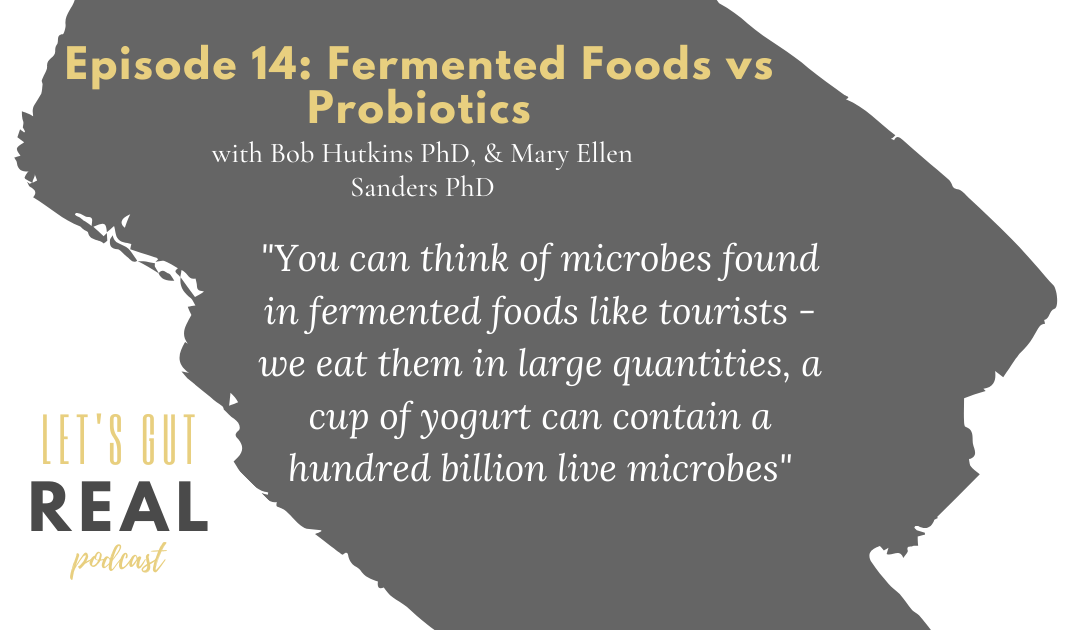*the podcast will be changing to every other week during the COVID-19 outbreak due to my interviewees busy schedules*
Today, we have 2 members if ISAPP – the international scientific association for probiotics & prebiotics with us today, Dr. Robert Hutkins and Dr. Mary Ellen Sanders.
Bob Hutkins, PhD runs the Hutkins Lab out of the University of Nebraska. His lab studies bacteria important in human health and in fermented foods. His lab is particularly interested in understanding how diet and dietary food components influence the bacteria that reside in the gastrointestinal tract. The main goal is to understand and predict how diet-induced shifts in the microbiota ultimately influence human and animal health. His lab also conducts clinical studies to assess the effects of prebiotic and probiotic interventions on gut barrier functions and other health outcomes.
Mary Ellen Sanders, PhD is a consultant in the area of probiotic microbiology. She works internationally with food and supplement companies to develop new probiotic products and offers perspective on paths to scientific substantiation of probiotic product label claims. She has published 130 peer-reviewed papers on microbiology, efficacy substantiation, and regulatory issues, mostly pertaining to probiotics, and has served on important panels to help develop guidelines on the proper use of probiotics. Dr. Sanders serves as Executive Science Officer for the International Scientific Association for Probiotics and Prebiotics (www.isappscience.org), where she works with academic and industry scientists to advance the science, promote evidence-based clinical use, and improve consumer understanding of probiotics and prebiotics.
- What are fermented foods?
- What are probiotics?
- How fermented foods and probiotics differ and why it’s important to define a difference?
- Why do we need to be precise with conversations on probiotics?
- Discuss the new AGA’s Clinical Practice Guidelines for Probiotics
- Where evidence exists to support the use of probiotics
- Bacterial persistence – if they don’t join our microbes why do they benefit us?
- How one would use fermented foods versus probiotics
- A bit about the history of fermented foods & our health
- Why including fermented foods in our diet is a good idea
- Is the research strong enough to recommend fermented foods in the diet? What evidence exists?
- You can find up to date information on ISAPP by visiting https://isappscience.org or, if you listen to this before July 1st, you can sign up to their upcoming webinar ‘Fermented Food – Separating Hype from Facts.’ At 1pm BST (6 am MST).
REFERENCES
McFarland, L. V. (2010). Systematic review and meta-analysis of Saccharomyces boulardii in adult patients. World journal of gastroenterology: WJG, 16(18), 2202.



Recent Comments